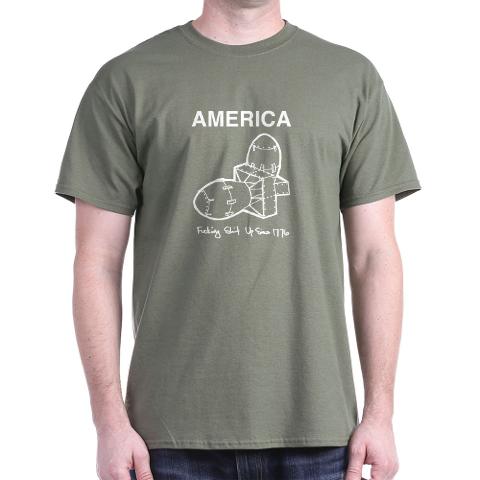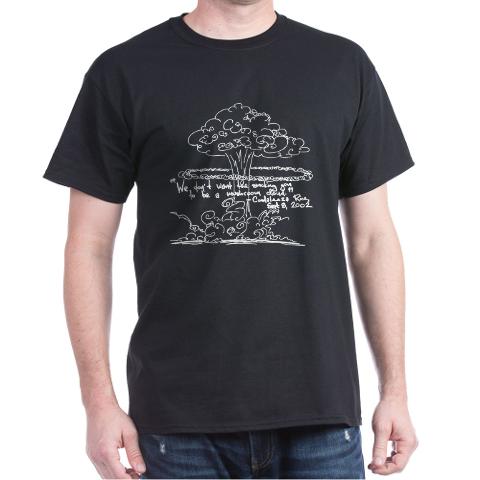Dress provocatively.



Following my Freshman Composition Class (ENGL 030H), the professor recommended that I consider a position at Penn State’s Undergraduate Writing Center as a peer tutor. True to her word, the experience forced me to reevaluate my own writing process in terms of the communicative and collaborative aspects. The semester of training (ENGL 250) culminated with a multi-modal composition, that is, “using alternative or hybrid media that can be alphabetic, visual, and/or musical.” To this end, I “composed” a series of t-shirts (right) exploring my identity as a citizen. Even at this early point, questions of identity and expression fascinated me. In the rhetorical analysis that followed (below), I conclude that “Our speech, manners, and even clothing are all an extension of these intertwined identities, and my shirts exemplify this position. In contemporary usage, the term to ‘dress provocatively’ implies sensuality and has taken on a pejorative connotation. I propose an alternative application where we provoke conversation, employing our clothes as the mode of expression they already are and realizing the full potential for communication.”
Dress Provocatively
November 05, 2009
I am suggesting that confrontation is not only an acceptable ingredient for the writing center, but a necessary one. In the aforementioned Weaver article, she writes that “the free expression of competing views is essential to the institution’s educational mission” and “the university is a special setting where a premium is to be placed on free expression.” (22) These descriptions mirror any decent democracy, where freedom of speech and deliberation provide a foundation for representation and, ideally, fair compromise between the participants. Any brand of self-imposed political seclusion is dangerous to democracy, inoculating citizens against alternative beliefs, which in turn breeds complacency. When dissenting views are branded dangerous and silenced, political participation is reduced to mere acquiescence, and flag-waving and chest-thumping replace rational thought and civic discourse. Just as Weaver recommends a plurality within the writing center, democracy demands a plurality of voices to sustain itself. Only then can we arrive at those essential components, coalitions and compromise.
Read More: